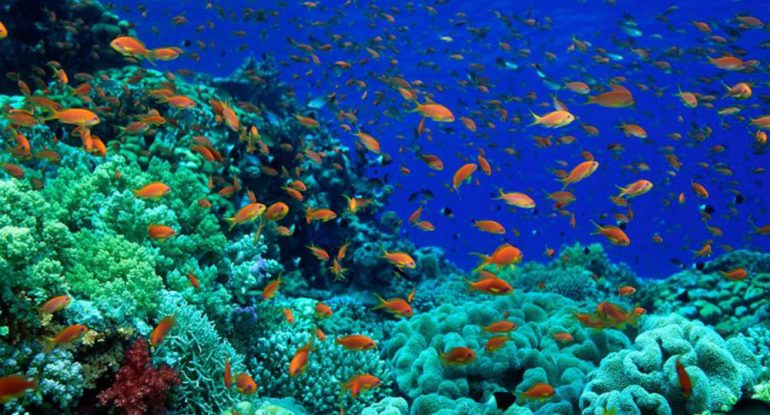
Blue Economy Conference
- Business
- 08 March, 2018
- 09 March, 2018
- Two Oceans Aquarium / Cape Town
About the Event
More than 90 percent of Africa’s imports and exports are conducted by sea and some of the most strategic gateways for international trade are in Africa. This inherently underscores the geopolitical importance of the region. The development of the Blue Economy holds immense promise for South Africa.
South Africa is blessed with a 3 924-km coastline; and uniquely bordered by two oceans on three sides – east, South and West.
Today more than ever the oceans are big business and have become a growth point for a variety of industries including fishing, marine transport, tourism and even electricity
The Blue Economy is envisaged as the integration of the Ocean economy development with a major focus on “social inclusion, environmental sustainability and innovative dynamic business models”. The Oceans covering South Africa are a prime area for seaway trade and commerce as it has a variety of untapped natural resources. The Oceans Economy will focus on Fisheries and Aquaculture, Renewable Ocean Energy, Seaports and Shipping, Seabed Exploration and Minerals, Marine Biotechnology, Research and Development, Tourism, Ocean Knowledge Clusters, SIDS and LDC.
The Blue Economy Symposium seeks to understand better the enormous opportunities emerging from investing and reinvesting in Africa’s aquatic and marine spaces, the balance can be tipped away from illegal harvesting, degradation, and depletion to a sustainable Blue development paradigm, serving Africa today and tomorrow. If fully exploited and well-managed, Africa’s Blue Economy has massive potential to constitute a major source of wealth and catapult South Africa and the continent’s fortunes as a whole.

Objectives
- Deliberate on finding sustainable means to utilize ocean and other water resources to develop a healthy blue economy for the country.
- Meet and Learn from experienced experts
- Learn about the Blue Economy concept and how it benefits the South African economy
- Deliberate on Frameworks and policy reform to attract more sustainable investments in the ocean
- Explore the Investment opportunities in the public and private sectors and Public and Private Partnerships
Aspects to be Covered
- Realizing the ocean’s potential
- Integrated understanding of Blue Economy
- Life Cycle Analysis, Environmental Impact Assessment and other decision-support tools
- the actual opportunities of the marine economy and how businesses and entrepreneurs can access them
- Managing coastal environments
- How to finance a sustainable ocean economy
- How coastal and marine tourism can help blue economies thrive
- How to fund blue economy endeavors and where to find partners
- What are the skills and competencies need to achieve an effective blue economy structure in South Africa
- How best to use the sea in an economically and environmentally friendly structure
- Emerging blue industries and solutions to overcome the problem of overfishing and pollution
- Emerging ocean industries and the vibrant ocean economy
- The role of marine protected areas (MPAs) and sustainable aquaculture
- Mapping the industrialization of our ocean, the risks and opportunities
- Industry best practices
- Sustainability and profit maximization
- Scaling the response to pollution and plastics
- Understanding the importance of the blue economy
- Employment creation
- Promoting entrepreneurship
- Effectively utilizing vast, untapped opportunities presented by the ocean
- Exploring the notion “Investing in Blue Growth depends on good governance and investment”
- What are the resources available for the blue economy at national and regional scale?
- Case Studies of successful investments in smart and sustainable solutions.
- Private sector can drive scalable, sustainable investment in the ocean
- challenges across the different blue economy sectors
- Looking into the future
- Blue Economy as a South African Strategic Priority
- Towards an integrated understanding of blue economy
- Diversifying economies beyond land-based activities and along coasts all in a climate-intelligent way
- How large is the opportunity?
- What are the risks involved?
- What is sustainable investment in the ocean?
- What kind of investment frameworks might be necessary?
- What capital is available, and how can it be scaled up?
- How do large corporate and financial institutions evaluate the sustainability of their investments in the ocean? What mechanisms are currently available?
- What is the scale of opportunity in the ocean economy?
- Discover what technologies are becoming increasingly relevant
WHO SHOULD ATTEND?
- Oceanographers
- Fishery scientists
- Environmentalists
- Naval experts
- Maritime industrialists
- Investment banking
- Construction and infrastructure developers
- Energy, renewable energy and deep sea mining
- Fishing and aquaculture
- FMCG and manufacturing
- Healthcare, medical research
- and regulation
- environmental and risk consulting
- Marine insurance and re-insurance
- NGOs, foundations and conservation funds
- Hospitality and Tourism
- Transportation, freight, port and airport authorities
- Telecommunication
- technology and ocean innovators
- Waste management and water treatment
